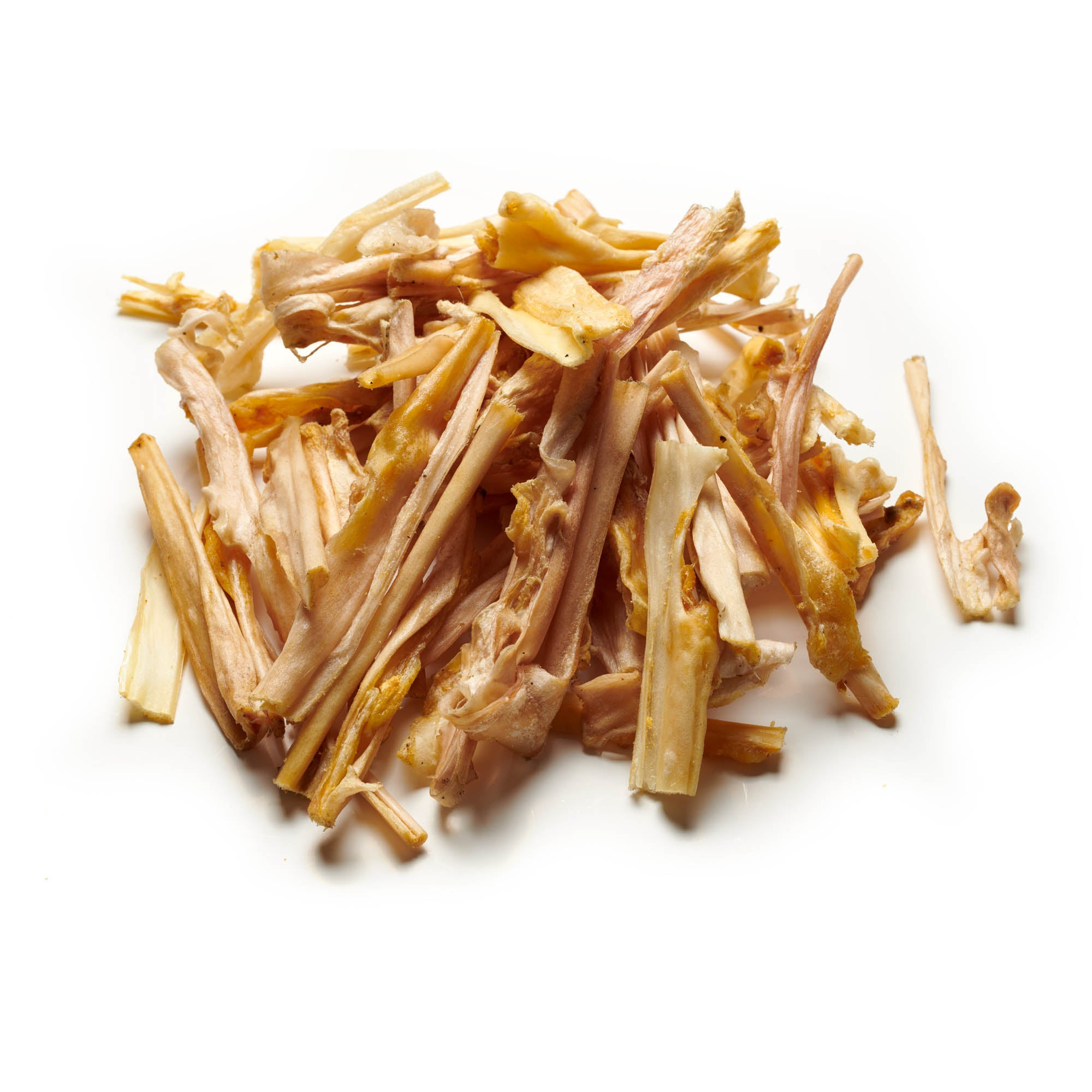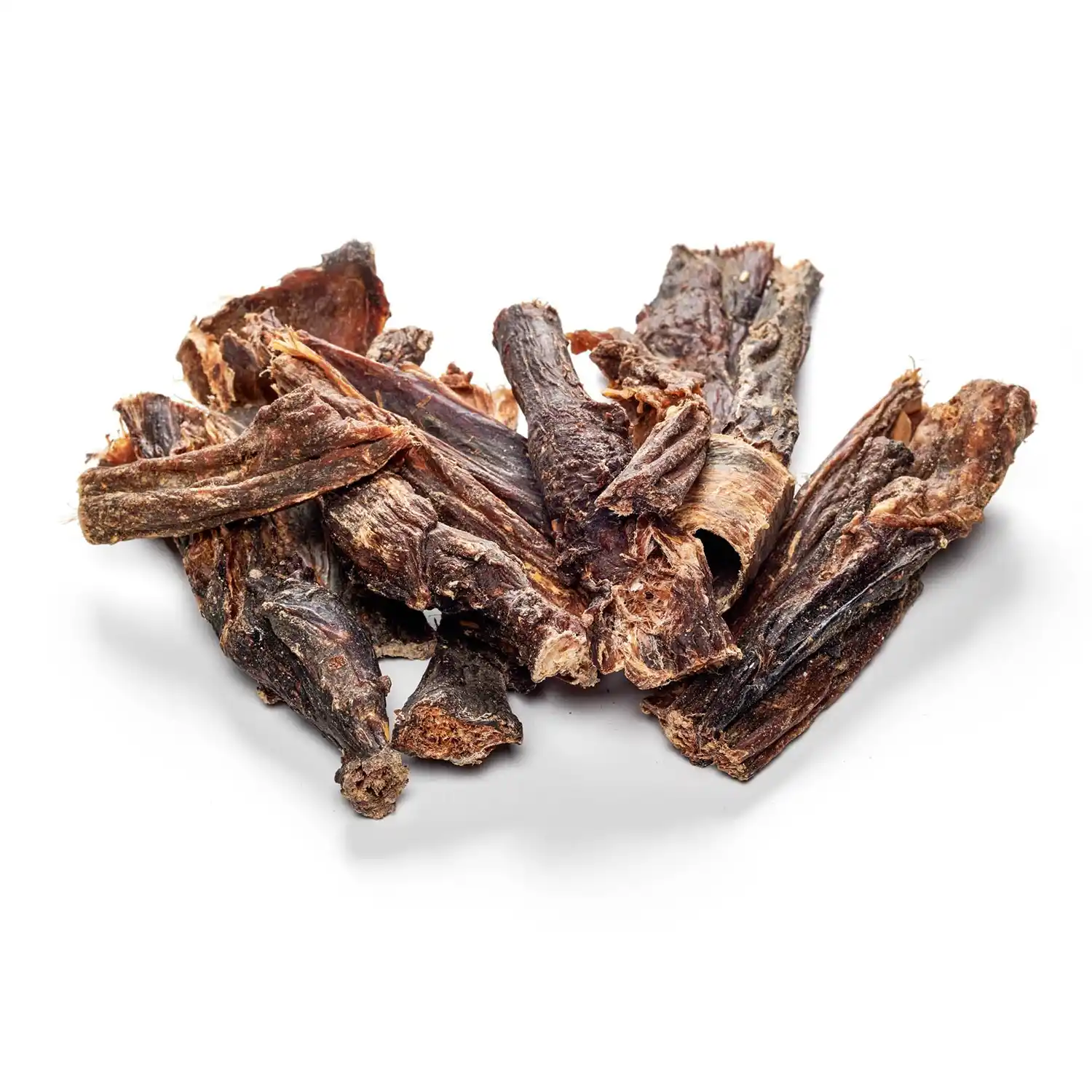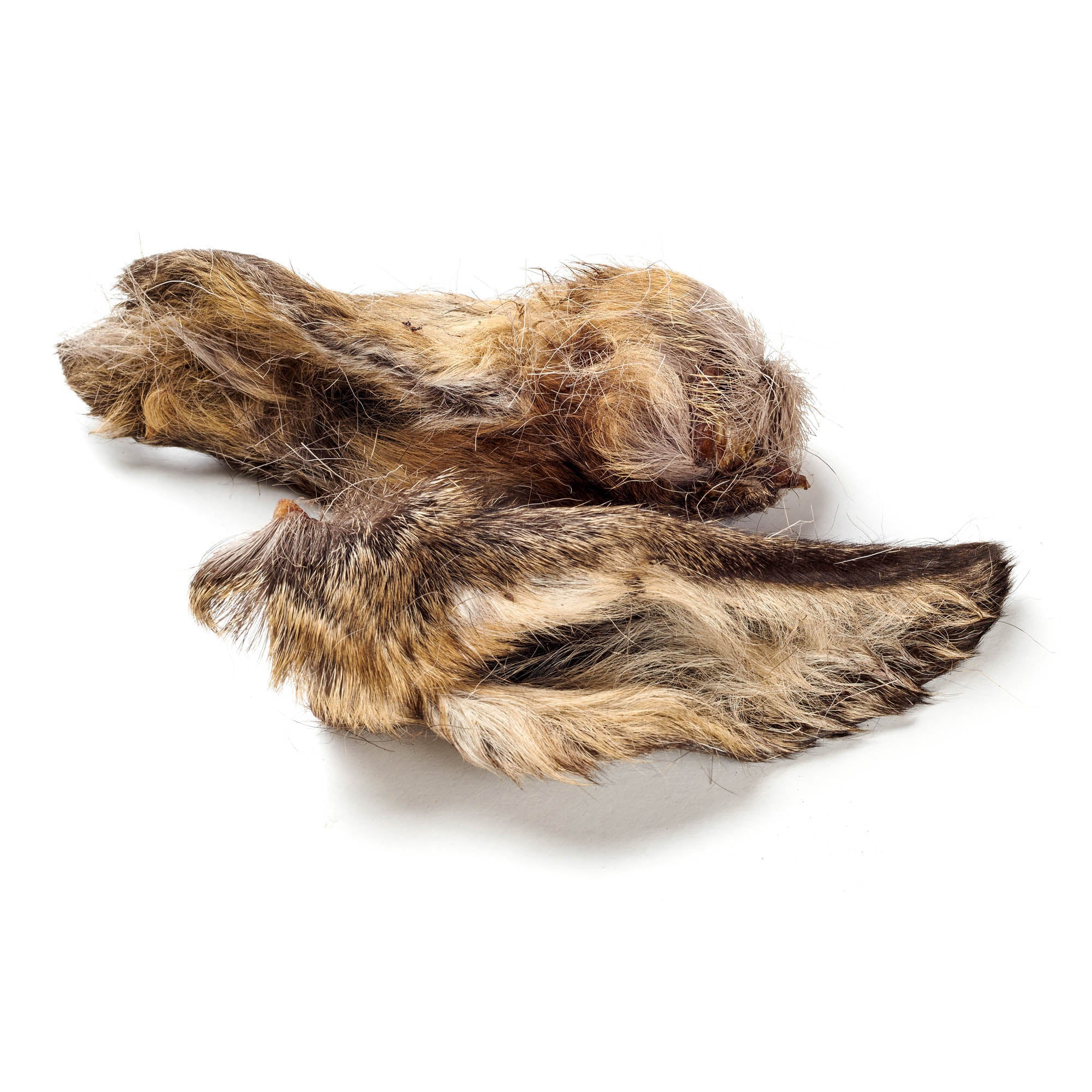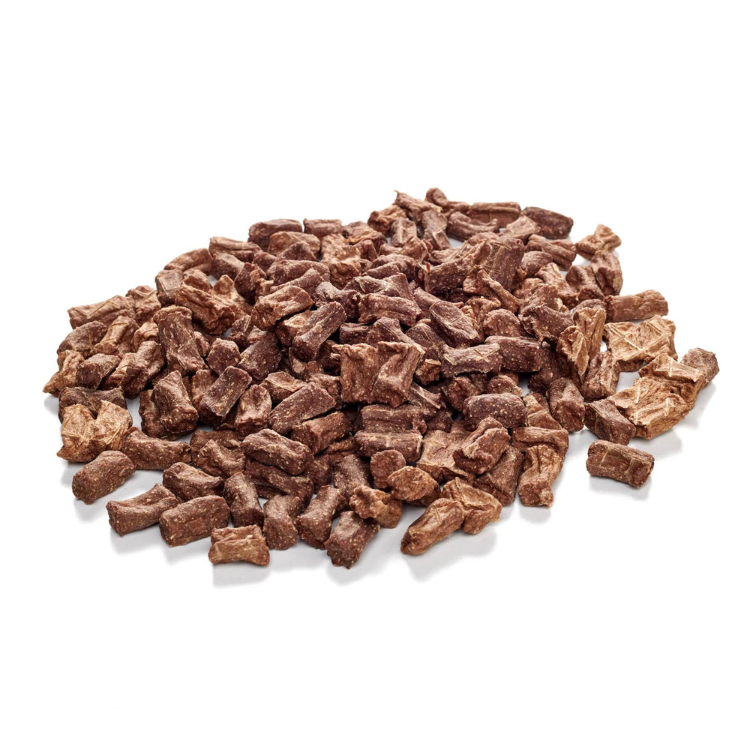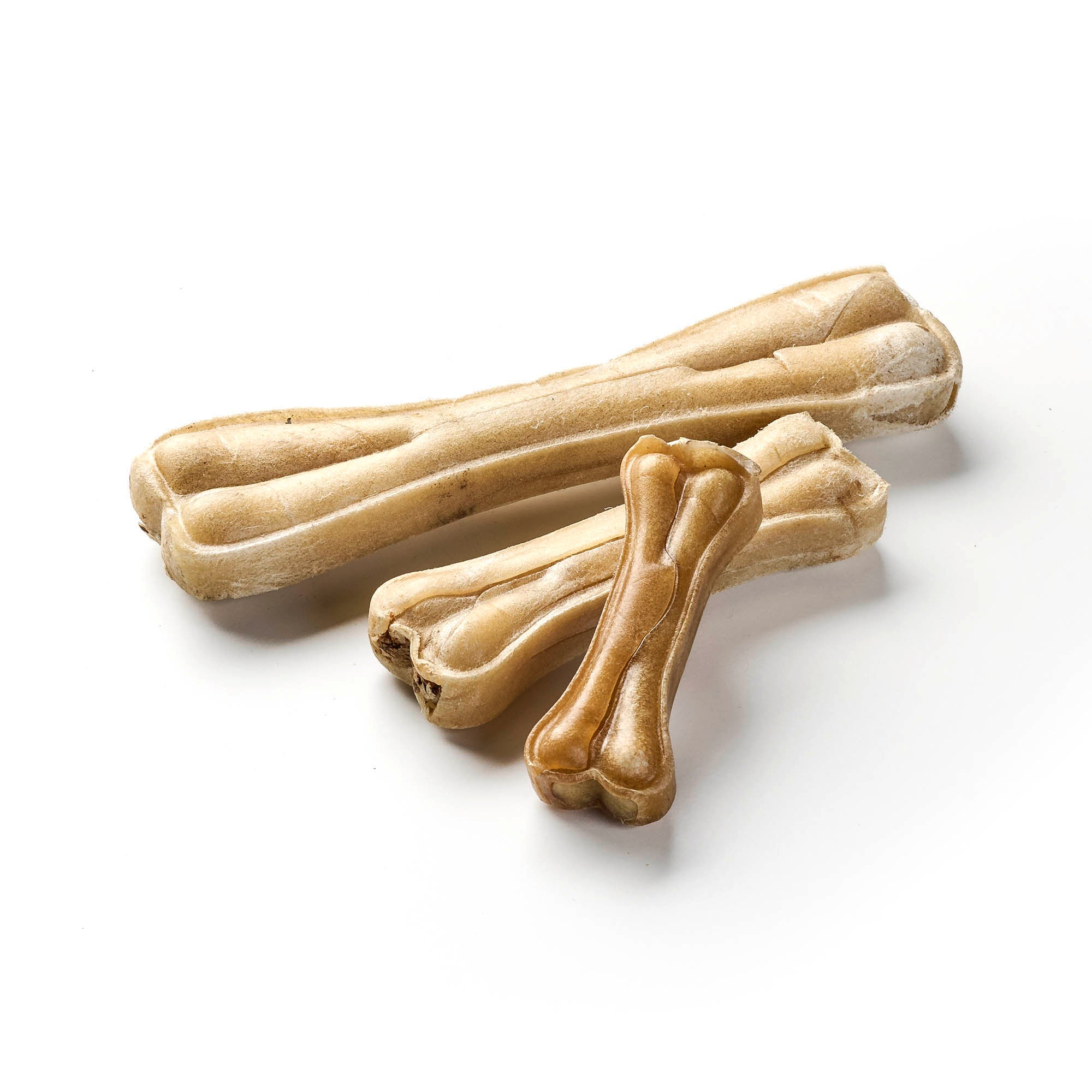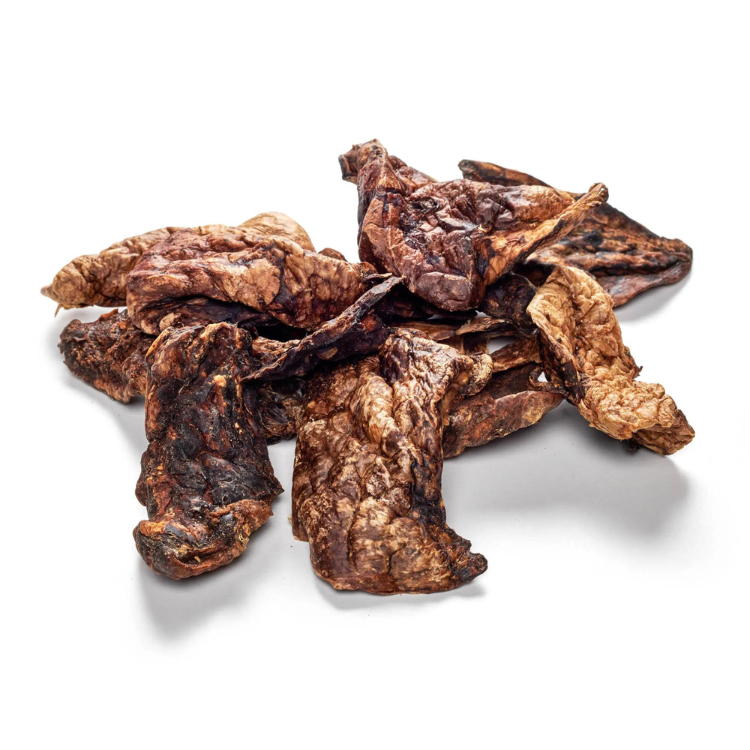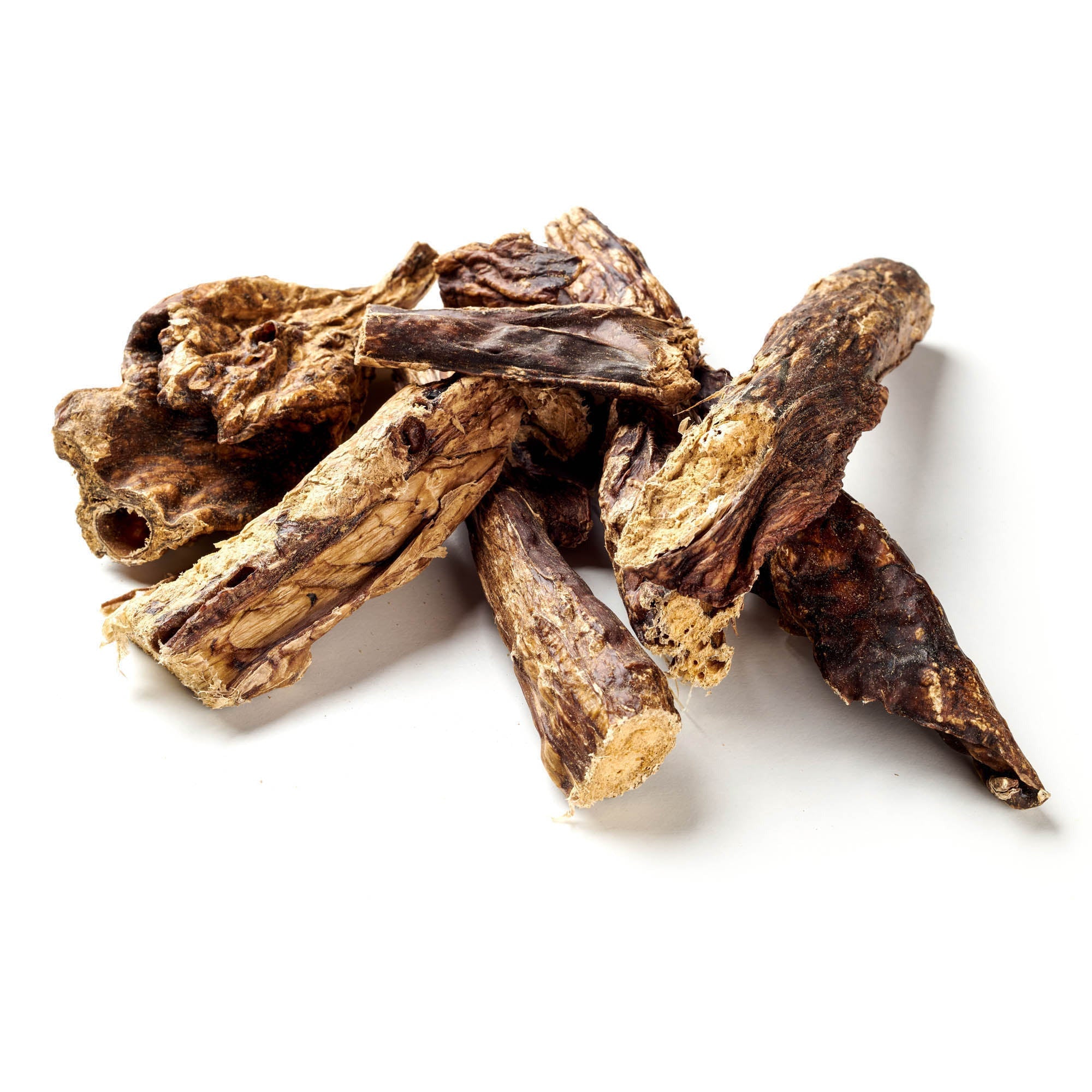
Dogs for allergy sufferers - what options are there?
Share
In this article, we will tell you everything you need to know about dog allergies. Among other things:
- How a dog allergy manifests itself
- What you can do about it
- Which dog breeds are suitable for allergy sufferers
Content: Dogs for allergy sufferers
- What symptoms occur with dog allergies
- More precisely
- Poodle with pacifier suitable for allergy sufferers
- Portuguese Water Dog
- Schnauzer - dog for allergy sufferers
- Goldendoodle and Labradoodle: hybrid dog breeds for allergy sufferers
- Conclusion: Dogs for allergy sufferers – take your time when choosing
Make your dog happy with our tasty chews!
What symptoms occur with dog allergies
Runny nose, scratchy throat, watery eyes, sneezing attacks: Even if you definitely don't have a cold, these could also be signs of a dog allergy.
The mucous membranes of the respiratory tract and the conjunctiva of the eyes are particularly affected. Symptoms can appear after a very short time.
Don’t bury your head in the sand
However, you don't necessarily have to give up on your dream of having your own four-legged friend. Just because you are sensitive to one four-legged friend doesn't mean that you are allergic to all dogs.
There are some dog breeds that, compared to other breeds, distribute fewer dog allergens and can therefore also be kept by allergy sufferers.
What you should also know
The so-called dog hair allergy is actually not an allergy at all, because the structure and texture of the hair is not what triggers an allergy.
A dog allergy is actually a hypersensitivity of the immune system to certain proteins in the dog. The allergens (allergy triggers) are found in the dog's saliva, gland secretions and urine and are only transferred to the fur when the dog is groomed.
Don’t be afraid to go to the doctor
Anyone who starts coughing in the presence of a dog or feels severe itching in the eye and nose area should definitely see a doctor and have an allergy test done.
If a dog allergy is ignored over the long term and regular and close contact with the four-legged friend is maintained at the same time, the symptoms can become more severe and, in the worst case, lead to asthma. In this case, being with your four-legged friend will make you ill.
What can I do if I am allergic to dogs?
Allergies can occur quite suddenly, even if you have owned dogs for many years and have never reacted with allergic symptoms to your four-legged friends.
But what then?
The simplest answer would of course be: don’t get a dog.
However, if you recognize the allergy early and get appropriate treatment and advice, you do not necessarily have to do without your animal companion.
Finding the cause
The very first step after diagnosing an allergy is to identify the cause of the allergy. A dog has various dog allergens in its body. If you, as an allergy sufferer, know which of the allergens triggers defensive reactions in the body, then you can treat your problems specifically.
Medication
If you experience allergy symptoms, a short-term solution is to take anti-allergenic medication in the form of drops, tablets or sprays.
And if that doesn't help?
In severe cases, cortisone preparations can also help. If you want to alleviate your symptoms in the long term, there are various options, such as therapy in the form of hyposensitization.
A medication is administered that builds up an immunological protection in your body and can prevent an allergic reaction. Ideally, you can live a life without dog allergy symptoms. Unfortunately, this doesn't work for everyone.
Note the following
Take a few precautions to make it easier for you as an allergy sufferer to live with your dog. As with all animal allergies, allergens enter the respiratory tract through house dust particles swirling around in the air. Therefore, avoid swirling dust in the room as much as possible and avoid carpeting. Clean your entire apartment meticulously - at least twice a week.
More precisely
Even within a breed, the allergy potential can vary. There are simply dogs that are better suited to allergy sufferers and those that are not. The better suited ones could at best be described as low-allergy dogs.
What that means
The non-shedding coat or the lack of an undercoat is often used as a measure of hypoallergenic dogs. However, contrary to what many dog owners believe, how much hair the dog loses, how long the hair is, etc. are often not the decisive criteria for whether the dog is suitable for allergy sufferers.
Reward your best friend with our dog treats!
Poodle with pacifier suitable for allergy sufferers
The Poodle: A smart, adventurous family dog that doesn’t shed
One of the most well-known dog breeds for allergy sufferers is the poodle , which is on almost every “dog for allergy sufferers list”. This dog very rarely sheds hair and is not affected by seasonal coat changes.
Since the four-legged friend's curly and wavy coat does not fall out, it does need to be trimmed. If you are allergic, it is therefore advisable to have your poodle sheared regularly in a dog salon.
Not to underestimate
Often misunderstood and anything but a pampered lap dog, the poodle is a true all-rounder and much more than a good dog for allergy sufferers. It is intelligent, active, loves children and is therefore ideal for adventurous families.
This four-legged friend also loves regular play sessions and long walks. Dog sports such as agility or obedience can also bring a nice change to his and your everyday life.
Portuguese Water Dog
The Portuguese Water Dog: swimmer, fisherman and loyal companion for allergy sufferers
The Portuguese Water Dog is not only the national dog of Portugal, but is also becoming increasingly popular with German dog owners. This is no wonder, because this four-legged friend is not only extremely intelligent, but is also characterized by a loyal, sociable and courageous nature.
Why they like water
Water dogs used to have the task of helping fishermen to herd schools of fish and haul in nets. For this reason, they love being close to water and love swimming.
The coat of the Portuguese Water Dog is somewhat reminiscent of that of the Poodle. It does not change its coat seasonally and sheds very little overall. To prevent the four-legged friend's hair from matting, it must be brushed regularly - about twice a week.
If you are allergic, it is better to leave this task to other family members or good friends.
Schnauzer - dog for allergy sufferers
The Schnauzer: A child-loving allergy-friendly dog
The agile Schnauzers are also said to be particularly suitable as dogs for allergy sufferers. The Schnauzer originally comes from southern Germany, where it was used as a stable dog to hunt rats and mice.
And his fur?
The Schnauzer's coat consists of a soft undercoat and a dense, hard top coat. If the coat is well cared for by regularly brushing and removing dead undercoat, the Schnauzer hardly sheds.
However, if you are allergic, it is best to leave the grooming to other family members. You should also plan to visit the dog salon at least twice a year to have your four-legged friend's fur properly trimmed.
Brushing your dog’s teeth
The Havanese: A small, happy dog for allergy sufferers
The Havanese does not usually grow larger than 30 cm. So if you are allergic and want a small, family-friendly dog, the Havanese is a good choice. It has no undercoat and no seasonal shedding. This means it spreads fewer allergens around the house. However, the Havanese does need to be brushed and trimmed regularly.
What makes it special?
It originally comes from Cuba and was often used as a herding dog for poultry, sheep and goats. Like all other Bichons, the Havanese has a happy and trusting nature. Its lively nature also suits families very well.
Goldendoodle and Labradoodle: hybrid dog breeds for allergy sufferers
Hybrid dogs are dogs that are the result of a combination of two different dog breeds. In the case of the Goldendoodle and Labradoodle, the Golden Retriever and Labrador were crossed with the equally friendly and cheerful Poodle in order to retain the good qualities of the family-friendly four-legged friends and at the same time create dogs for allergy sufferers. Both have a good-natured and loyal nature.
Relatively little effort
Their fur is considered easy to care for and suitable for allergy sufferers. Although the hybrid dog breeds need to be sheared at regular intervals of approximately every two months, otherwise it is sufficient to brush Goldendoodles and Labradoodles thoroughly once a week.
Conclusion: Dogs for allergy sufferers – take your time when choosing
Although Havanese, Labradoodles and the like are considered to be dogs especially for allergy sufferers, you should not rush into buying a dog if you are allergic. No two dogs are the same and there are also big differences between dog breeds when it comes to allergy potential.
Before buying a dog, spend as much time as possible with your chosen dream dog and visit him often to see if and what allergic symptoms appear.
Prepare early
You can find out whether you are allergic to the new dog before you buy it. All you need is a few dog hairs, which can be tested on your skin using a scratch test. Since appointments with specialists such as ENT doctors are often in high demand and difficult to get at short notice, you should try to get one as early as possible.
Discover our selection of premium dog chews!

